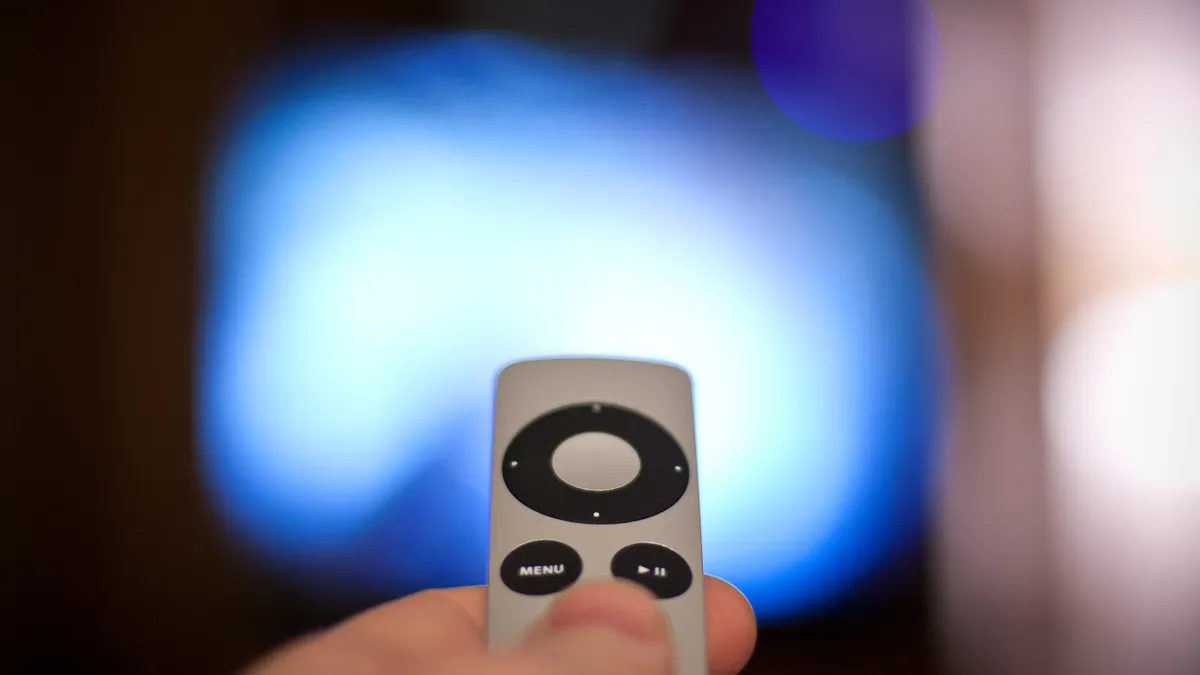Dive Brief:
- Some of the biggest advertisers in the world, including P&G and Unilever, as well as the Association of National Advertisers (ANA), are leveraging their collaborative influence to call for this year's TV upfronts — the marketplace for negotiating major TV ad deals — to be delayed until a lack of clarity around media buying driven by the COVID-19 pandemic begins to clear, according to a press release shared with Marketing Dive.
- The delay is part of a broader push by these entities outlined in the press release that calls for significant changes to the legacy ecosystem for purchasing ads. One of the proposals is to shift the upfront media buying marketplace to later in the year so that brands can better negotiate ad deals for the following calendar year. The current all-year negotiating process would remain in place as would the fundamentals of the marketplace, but the shift in timing would provide a more accurate view of supply and demand while better aligning ad buying to marketers' fiscal years.
- The uncertainty in the economy driven by the COVID-19 pandemic has increased the urgency around the need to move the timing of the upfronts, according to several of the executives quoted in the release.
Dive Insight:
Advertisers have been pushing for changes to the upfronts and the broader media buying ecosystem for some time, with such calls becoming more prevalent during the COVID-19 pandemic. This new initiative is noteworthy for bringing together some of the world's biggest advertisers to collaboratively voice their demand for change, including P&G, Unilever, Nestle, Mastercard, McDonald's and Bank of America.
The timing is also notable, coming during a period of significant uncertainty driven by the COVID-19 pandemic, with broadcasters delaying new programming because in-person productions. Many advertisers have also pulled back on their ad spend because of the challenges inherent in messaging to consumers during a period of such significant stress and economic uncertainty, which is impacting sales — negatively for some brands and positively for others.
As a result of the current uncertainty, upfront sales are not expected to be strong this year. BMO Capital analyst Daniel Salmon forecast that upfront sales volumes will come in at around 40% to 60% of total inventory down from 70% to 80% average sales in prior years, per a report in MediaPost. The timing of the upfronts has also been more staggered than normal due to the pandemic's disruption, with presentation formats moving away from splashy in-person events to smaller-scale online gatherings.
Under these circumstances, broadcasters could be eager to book ad deals for next year, when the expectation is that pandemic will ease and the economy may start to return to normal. This may make them more open to working with advertisers on a way to change the upfront marketplace so it better meets the needs of all invested parties.
Traditionally, advertisers preview TV fall programming in spring and place bids upfront for the broadcast year that starts in the fall. However, as programming increasingly moves to a more staggered roll out strategy — in part because of the popularity of streaming platforms like Netflix, which drop new shows throughout the year — the timing of the upfronts has become an issue, with brands looking for greater flexibility in the process.
The health crisis has amplified the need for a more flexible media buying process because, in part, of how it has disrupted programming, including the cancellation of live sporting events that typically draw significant advertising spend. Advertisers are also looking for a number of other changes to the media buying ecosystem, which were highlighted in the press release.
"While there are benefits to the upfront, it remains an antiquated business system that needs reform," said Marc Pritchard, ANA chairman and P&G's chief brand officer, in a statement. "Other efforts such as cross platform measurement, brand safety, anti-fraud, data transparency, and privacy are also taking way too long and must be accelerated."














